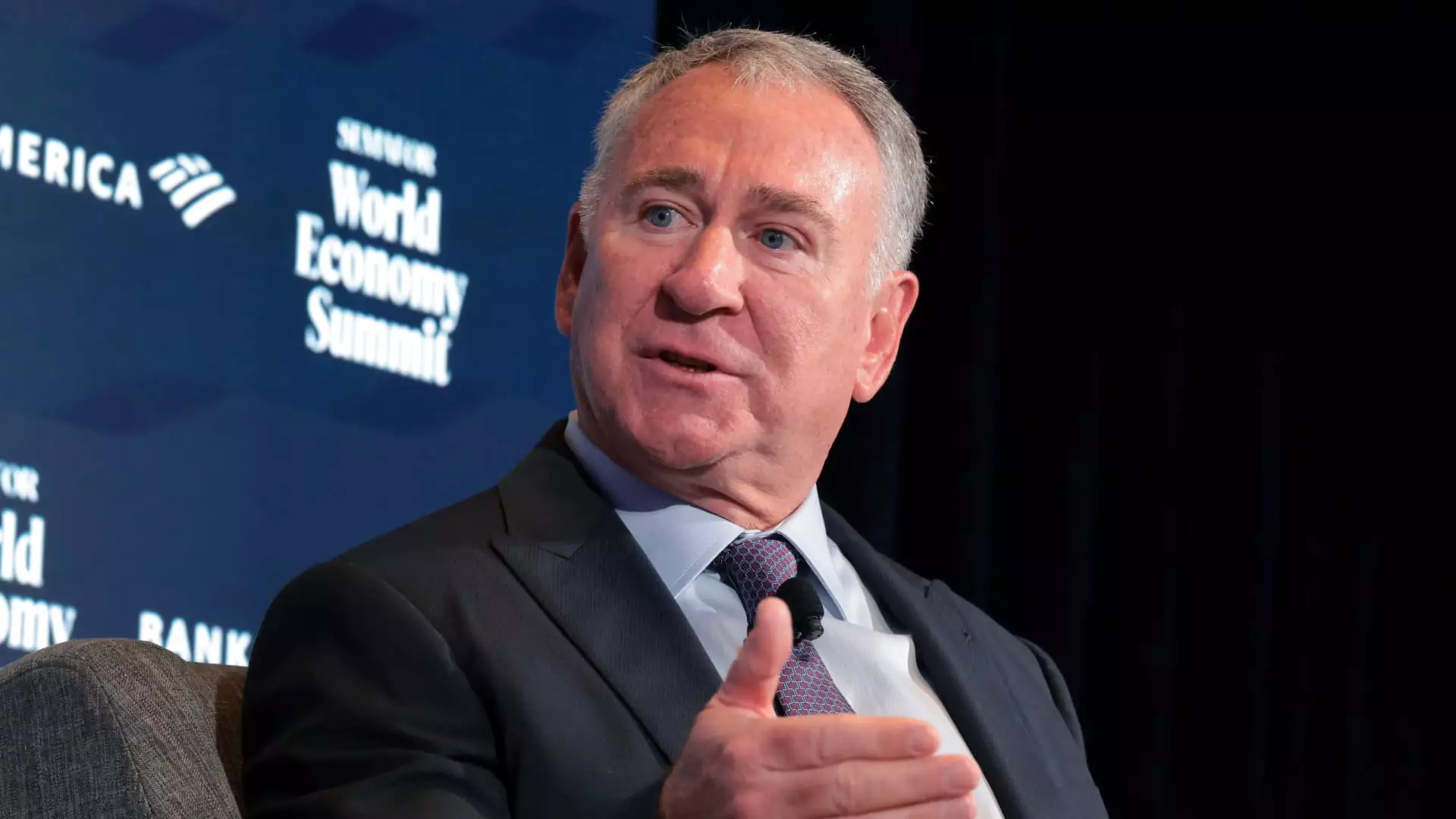In contemporary American politics, few issues ignite debate like trade policies, particularly under the Trump administration. Ken Griffin, the founder of Citadel, recently emphasized the detrimental impact of President Trump’s aggressive trade tactics on America’s global reputation. With tariffs reaching levels unseen in decades, Griffin asserts that not only are we risking financial stability, but we may also be damaging a multi-faceted brand that the United States has cultivated for generations. Much like a high-stakes poker game, one misstep could lead to game-ending repercussions on the global stage.
A Deteriorating Global Image
Griffin aptly pointed out that America is more than just a nation; it represents a powerful and aspirational brand. From its financial markets to cultural influence and military capabilities, the U.S. has long stood as a beacon of prosperity and stability. However, the president’s bombastic rhetoric and erratic policy shifts threaten to erode this carefully built identity. The world once looked to the U.S. as a model of governance and economic success, but Trump’s confrontational approach is transforming that perspective into one of uncertainty and volatility.
Wall Street Reacts: Tariffs and Tremors
The market’s volatility following the announcement of high tariffs reflects Griffin’s concerns. Financial markets thrive on stability and predictability, attributes that the U.S. has historically embodied. Instead, this administration’s erratic trade maneuvers have resulted in rising Treasury yields and a weakening dollar, indications of investor skepticism toward American securities. When the perception shifts from viewing the U.S. as the “safest place to invest” to a questionable prospect, the implications for both the economy and the global financial infrastructure are profound.
Preserving the American Brand
Griffin, a significant donor to Republican causes, engages critically with the very administration he supported. His call for both the president and key economic leaders to tread thoughtfully when wielding the power of the American brand is not merely a plea; it is a warning. The financial landscape is built on confidence, a commodity that once made U.S. Treasuries the gold standard. If that confidence erodes—particularly due to unconsidered rhetoric or erratic policies—it could take years to rebuild, if ever.
The Cost of Brand Damage
One must ponder what is at stake when leaders act impulsively. Griffin articulated a poignant truth: “When you tarnish that brand, it can be a lifetime to repair.” Economic decisions should not merely be reactive but also strategically assessed for their long-term implications. The U.S. does not just operate in a national vacuum; every action resonates on a global scale. If we are to preserve our place as a formidable force in world markets, a shift toward more balanced and respected trade policies is imperative.
In Defense of Rational Discourse
Ultimately, Griffin’s critique transcends party lines; it calls for a serious reconsideration of how trade policies can reflect America’s best interests without forsaking its esteemed reputation. Emphasizing reason over rhetoric, Griffin advocates for a strategy that enhances rather than diminishes our standing in the world. Leadership should not be about bravado but about fostering an environment where American ideals can flourish—one that guarantees economic stability and global respect.
In this era of shifting landscapes, it is more critical than ever for leaders to understand that their words and policies matter, not just domestically—but internationally.

